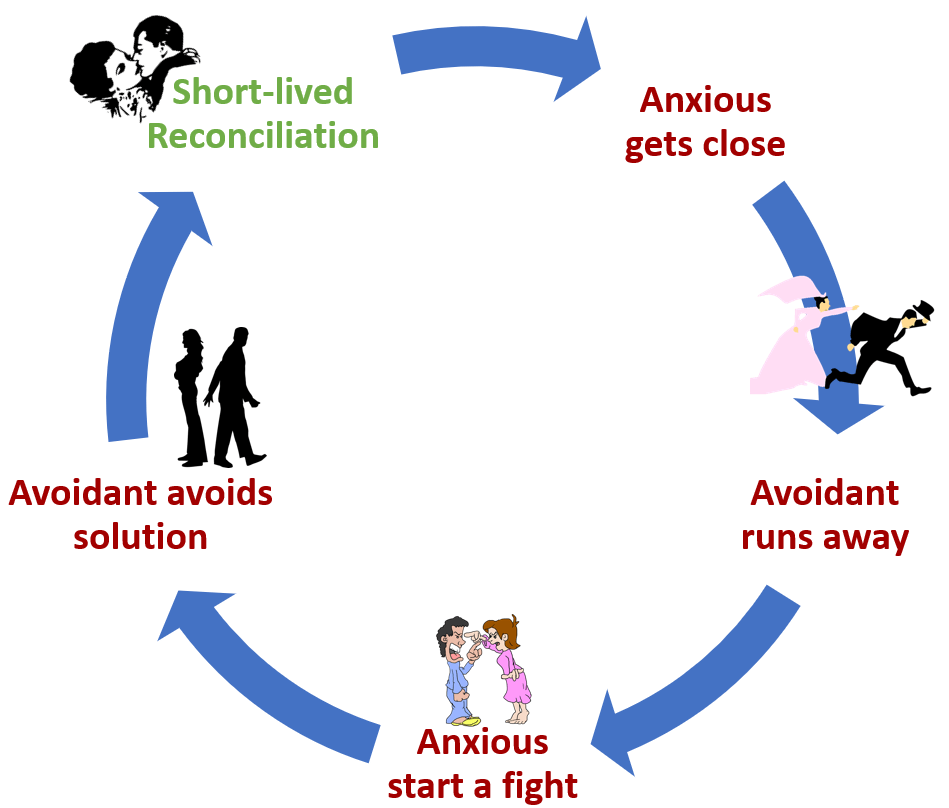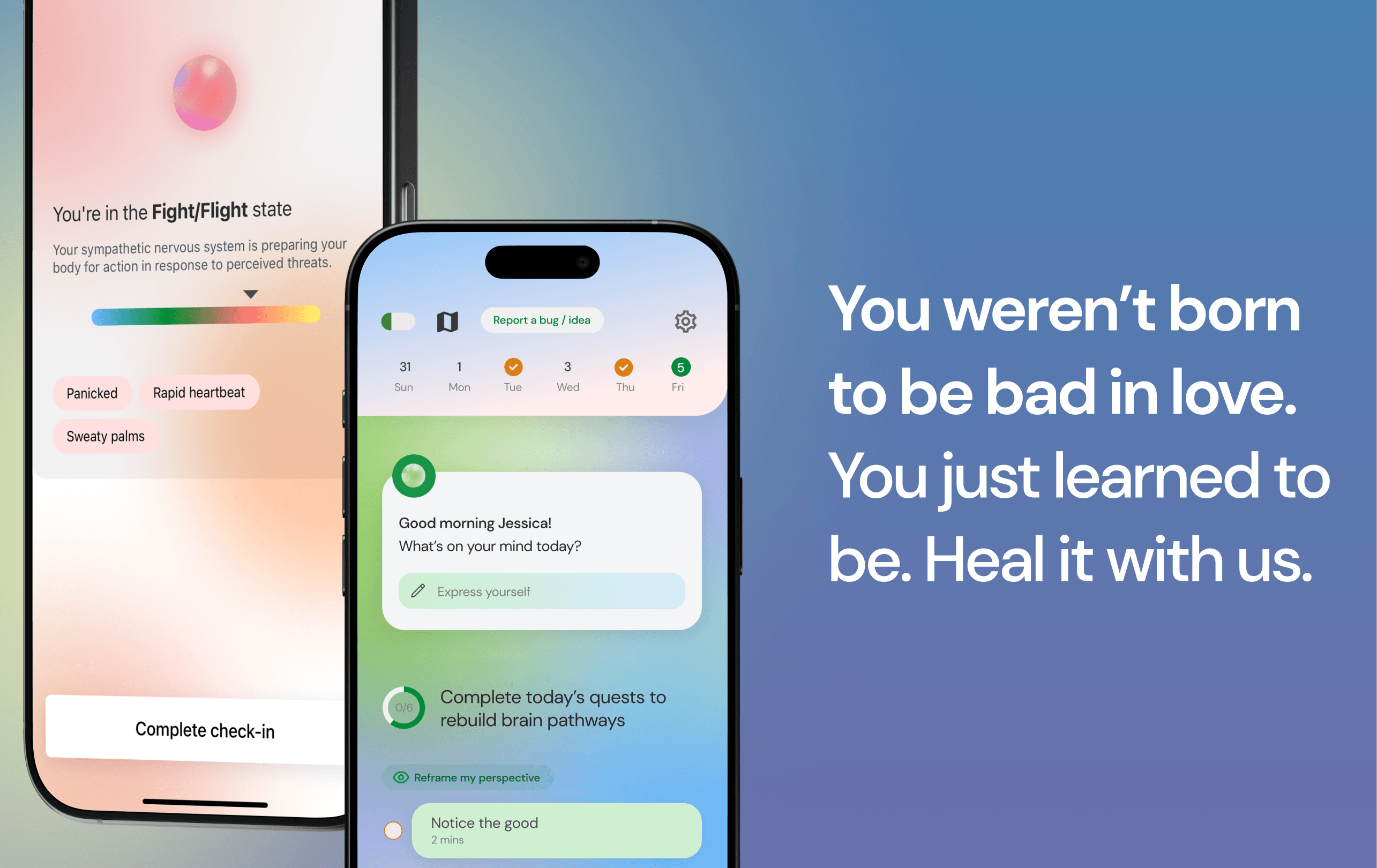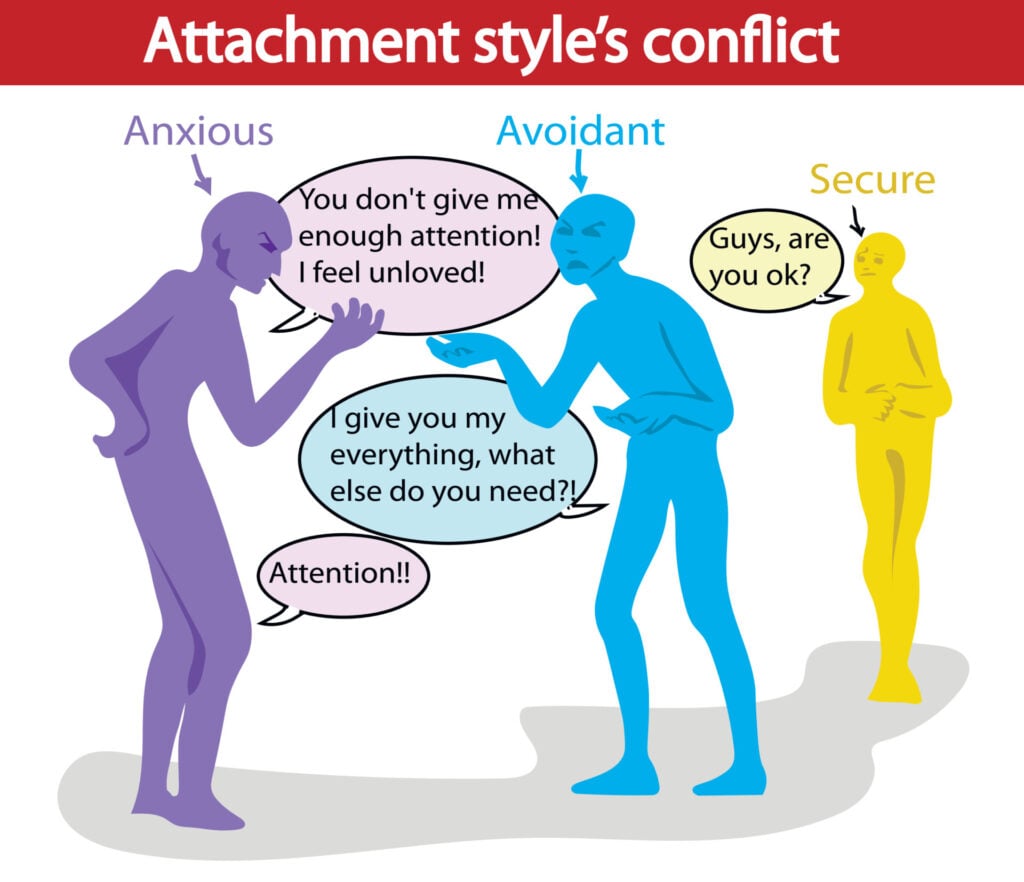What to Do If Your Partner Has an Avoidant Attachment Style

What to Do If Your Partner Has an Avoidant Attachment Style
They pull away just when things get good. They send mixed signals that drive you CRAZY. But before you give up on your avoidant partner, you need to read this.
So you've read "Attached" and discovered your partner has an avoidant attachment style. Maybe you've identified as anxious yourself. And even with all this new insight... it still hurts sometimes, doesn't it?
First things first: You're not alone, and you're definitely not crazy. Let's talk about how to navigate this relationship dynamic in a way that helps both of you thrive!
1. Understand You're Not "Too Needy" - You're Getting Mixed Signals
Your avoidant partner isn't being cold or heartless on purpose. But they can definitely be confusing! Especially when you naturally desire closeness and consistency.
One day they're warm and affectionate, the next they seem distant or withdrawn. It's completely normal to wonder:
- "Did I do something wrong?"
- "Should I give them space?"
- "Should I bring it up or let it go?"
Here's what's important to remember: You're not being "too needy." You're simply responding to inconsistent signals, which would unsettle anyone. Those mixed messages feel threatening when your attachment system is activated.
2. Why They Pull Back After Closeness
Have you noticed this pattern? You two get closer → they start creating distance.
For your avoidant partner, intimacy can unconsciously trigger feelings of being overwhelmed. Their early experiences likely taught them that too much closeness equals loss of freedom or emotional flooding. So just when you're feeling wonderfully connected, they're instinctively creating space to regain their sense of self.
What feels like rejection to you is actually their way of self-regulating. Understanding this difference can help ease the hurt and reduce self-blame when it happens.

Learn more: Anxious-avoidant attachment
3. How to Calm Your Nervous System (Instead of Over-Pursuing)
That urge to send another text, call again, or over-explain yourself? It's actually a perfectly normal response! But acting on these impulses often creates exactly the distance you're hoping to prevent.
Instead, try these friendly approaches:
- Take slow, deep breaths when anxiety rises, creating space between feeling and action
- Ground yourself physically – feel your feet on the floor or the texture of your clothes
- Write out what you want to say in a journal first, giving yourself time to process
You don't need to pretend you're perfectly secure – just practice staying with yourself when things feel uncertain.
4. How to Express Your Needs Without Overwhelming Them
Avoidant partners can feel flooded when confronted directly. That doesn't mean you should silence your needs! Try these gentler approaches:
- "I notice I feel a bit unsteady when we go several days without connecting. Would a quick daily check-in feel doable for you?"
- "I want to respect your need for independence, and I also value our connection. How might we balance both?"
Keep communication brief, kind, and focused on finding solutions together – not on making demands.
5. Three Ways to Build Trust With Your Avoidant Partner
- Honor their need for autonomy while still being clear about what matters to you
- Stay emotionally consistent (rather than punishing distance with more distance)
- Take responsibility for your feelings while sharing them honestly
These practices create safety for both of you – the foundation of any thriving relationship!
6. What to Say When They Need Space
While there's no magic script, these gentle approaches offer connection without pressure:
- "I'm here whenever you're ready to connect. No rush at all."
- "I've noticed a bit of distance between us lately. Just want you to know I'm thinking of you."
Remember, patience and understanding go a long way in building a secure and loving relationship.
FAQ
How do I know if my partner is avoidant or just not that into me?
Avoidant partners often show mixed signals - they may be affectionate one day and distant the next. They typically have a pattern of pulling away when things get too close or serious. Someone who's "just not that into you" usually shows consistent disinterest.
Can avoidant attachment be changed?
Yes, attachment styles can change with self-awareness, therapy, and healthy relationship experiences. However, change takes time and both partners need to be committed to the process.
Should I give my avoidant partner space when they pull away?
Yes, but with boundaries. Give them space while maintaining your own emotional stability. Don't chase or over-pursue, but also don't completely disappear. Stay consistent and available.
How long should I wait for my avoidant partner to come back?
There's no set timeline, but if they consistently disappear for weeks or months without communication, that may indicate deeper issues. Healthy relationships involve mutual effort and communication.
Can anxious and avoidant partners work together?
Yes, but it requires both partners to understand their patterns and work on creating a secure relationship dynamic. Many anxious-avoidant couples can build healthy, loving relationships with the right tools and support.
Final Thoughts
Navigating a relationship with an avoidant partner can be challenging, but it's not impossible. The key is understanding that their behavior isn't about you - it's about their own internal struggles with intimacy and closeness.
By practicing patience, setting healthy boundaries, and focusing on your own emotional regulation, you can create a relationship that works for both of you.
The Attached app helps make this process easier with:
- Daily Quests for building secure attachment habits.
- Help Mode for managing anxiety when your partner pulls away.
- AI Journal to process your feelings and understand your patterns.
- Weekly Coaching from Eden, your relationship guide.
Download Attached for free and start building a more secure relationship today.


